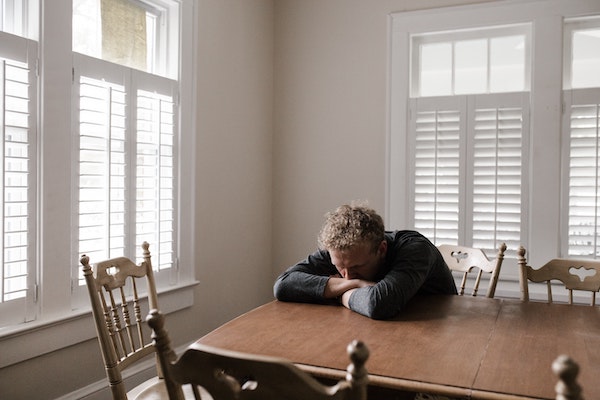Is Depression Getting In The Way Of Your Best Life?
Depression is debilitating and can negatively impact every area of your life. You might feel hopeless that your situation will ever change or that you’ll ever become the person you want to be. As a result, you may find yourself struggling with lack of energy and motivation, as if nothing in life is truly worth the effort.
The symptoms of depression aren’t just emotional—they can be physical, too. You might suffer from extreme fatigue, poor sleep habits, and changes in your appetite or weight. Even your relationships can be affected, as other people struggle to understand you and don’t know how to help. This could make you feel invisible and alone.
After a while, you might find yourself in a pattern of withdrawal. Since you don’t enjoy anything anymore, you may have little motivation to socialize or engage in the activities you love. And the more you withdraw, the worse you feel—on and on the cycle goes.
If you want to break out of your depressive mood and rekindle your sense of hope, I encourage you to pursue depression therapy. The right support and interventions can help you identify the root causes of depression and lift the fog of hopelessness from your life.
“There is a voice within you which no one, not even you, has ever heard. Give yourself the opportunity of silence and begin to develop your listening in order to hear, deep within yourself, the music of your own spirit.”
– John O’Donohue

Depression Is Rampant All Over The Globe, Yet Many People Suffer In Silence
Roughly 300 million people around the world struggle with depression, and when you consider how many cases go unreported, the number is probably much higher. A lot of people with depression suffer in silence because they’re afraid of being seen as weak or lazy or they’re simply tired of burdening others. After all, a stigma still surrounds mental health issues. Yet just like many physical illnesses, mental illnesses can’t always be prevented.
Depression frequently arises because of factors outside of someone’s control. It often stems from trauma, health problems, grief and loss, and low self-esteem. Many people become depressed because they feel trapped in dead-end jobs or relationships that are toxic and unfulfilling. Others may struggle with depression because it’s genetic and runs in their family.
Depression Robs You Of The Tools You Need To Find Happiness
Our culture tends to foster a “pull-yourself-together” mindset when it comes to mental health. The problem is that depression drains the very motivation and energy that you need to overcome it. The condition immobilizes you from taking positive steps to improve your state of mind.
Additionally, it’s hard to get to the bottom of depression on your own. There are all kinds of life hacks and pop psychology tips out there for achieving emotional wellness, but unless you get to the source of depression, it’s very hard to actually feel better.
With a skilled therapist who offers empirically-based interventions like IFS and EMDR, you can uncover the root of your symptoms and treat depression at its source.

Therapy Can Help You Heal Your Wounded Parts And Find Lasting Relief From Depression
Depression counseling is a chance to question the things you tell yourself and address negative core beliefs.

Depression is often a byproduct of how you see yourself in relation to the world. And if you see yourself in a negative light, you’re probably not going to feel very good in day-to-day life. Depression counseling is a chance to question the things you tell yourself and address negative core beliefs. Once you begin to think differently, it becomes much easier to live differently.
As a depression therapist, I aim to create a safe space for you to explore the source of your depression, identify maladaptive attempts to manage it, and learn tangible skills to improve your mood. Together, we will look into the origins of your depression and implement strategies for increasing self-awareness and improving self-care.
I Take A Trauma-Focused Approach To Depression Therapy
I draw from a wide range of interventions to help clients find relief from depression. What approach I take ultimately comes down to what is best for your situation. Since trauma often lies at the root of depression, I sometimes use an approach called EMDR (Eye Movement Desensitization & Reprocessing) to reduce the emotional pain associated with traumatic events. Basically, EMDR helps you process the memories responsible for negative core beliefs, allowing you to live unhindered by the pain of the past.
I also draw from IFS (Internal Family Systems), an approach that sees the self as a family of many different parts. Some of these parts may be wounded because of past trauma. For instance, if you suffered from a neglectful or abusive relationship, part of you may fear getting into new relationships and prefer to isolate. IFS can help you heal this wounded part so that it doesn’t affect your life as much.


Depression Therapy Can Help You Separate Yourself From Your Negative Thoughts
While my approach often seeks to address past trauma, my ultimate goal is to help you find peace in the present. To do so, I often use techniques from Mindfulness-Based Cognitive Therapy. This approach can help you challenge your thoughts and beliefs instead of over-identifying with them. It’s so easy to think “I’m no good” or “I’m not lovable” and accept these statements as fact. A mindfulness-based approach to depression therapy can help you create space between you and your negative thoughts, allowing you to see them more objectively.
No matter how hopeless you feel, it’s important to remember that depression is very treatable. Implementing the right interventions can help you heal from past trauma, find relief from your symptoms, and enjoy life again.
You May Have Some Concerns About Depression Therapy…
I have felt this way for too long. I don’t think anyone can help me.
Depression has a way of convincing you that things are hopeless, so it’s only natural to believe that you’ll never feel differently. But like any mood disturbance, depression doesn’t have to be permanent. The key is to get to the root cause of your depression and treat it using empirically-based interventions. No matter how long you’ve been struggling with depression, the right counselor and the right treatment can make a huge difference.
I feel like I’ve tried everything. What will you do that’s different?
You may feel like you’ve tried everything, but it’s possible that the specialists you’ve seen haven’t adequately assessed the roots of your depression. I want to help you peel back the layers of depression and go deeper than other specialists have gone. I also draw from many different interventions at once, ensuring you get holistic, well-rounded care that addresses every area of your life.
I don’t think I have the energy for therapy.
This is normal—your depressed part is telling you to shut down. It takes all the energy out of you and tells you to sleep the day away. Reversing the spiral of depression begins with setting small goals and gradually working toward long-term healing. You don’t have to feel motivated to come to therapy—I encourage you to come as you are. Besides, the fact that you’re reaching out is a sign of hope and shows that you’re willing to grow and change.
Let Me Help You Lift The Fog Of Depression
If you’re tired of surface solutions for depression and you want to go deeper than you’ve been before, I encourage you to pursue professional counseling.
If you would like to explore depression treatment with me, you can use the scheduling form or call 484-743-1776 to set up a free, 15 to 30-minute phone consultation.
Related Articles
How Does Depression Affect the Brain?
As one of the most common mental health conditions in the world, most people have a basic understanding of what depression is. But that’s often limited to some of the common symptoms.





